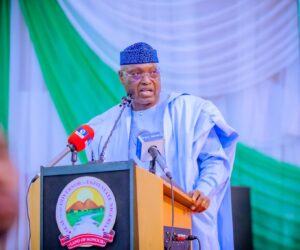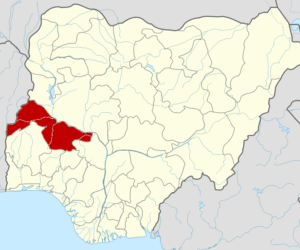Wan-Ying Yang is the Dean of the College of Social Sciences at National Chengchi University (NCCU), Taipei City, Taiwan. In this interview with Bunmi Fatoye-Matory, the academic discusses her experience at the university, gender equality in Taiwan and other issues.
Excerpts:
Premium Times: Tell us about your university.
Dean Yang: National Chengchi University, NCCU, is a unique place. It reflects the history of Taiwan. It was founded in mainland China in 1927. In two years, it will be our 100th anniversary. It was founded by Kuomintang, KMT, which was then a revolutionary party with Leninist orientation. They fled to Taiwan after losing the civil war to the Chinese Communist Party led by Chairman Mao. The university was founded to train young party cadres who would lead the party, but it later expanded its mission. Back then, if you obtained a degree from NCCU, you would get a job like mayor or magistrate. NCCU is modelled like Science Po, a university in Paris founded in 1872 to train French elites to manage the bureaucracy. In the beginning, NCCU focused on political science and public finance. After KMT lost the civil war, the university was brought to Taiwan and reorganised. KMT imposed martial law on Taiwan for 38 years. They became authoritarian. The university was associated with the party leadership. In the 1980s, there was a movement for democratisation. A university is a mirror of the political history of a country. We started rethinking NCCU. After a decade of struggle, democratisation came in the early 90’s. In 1996, we had the first direct presidential elections. The legislative Yuan was not democratically elected until 1992. For a long time, most of the legislators were those elected in mainland China. Even though they lost the war, they retained their positions and insisted they were the only party for China. I was born under authoritarian rule, and I was a student at NCCU during the struggle for democratisation. I joined the Wild Lily Movement. Students protested at the Chiang Kai Shek Memorial. He was the authoritarian leader of KMT, and students didn’t want him to be memorialised. They called his Memorial Hall a secular temple. It’s a big debate for many countries- how to remember the past. Under martial law imposed by Chiang Shek, there was press censorship, many freedoms were taken, and many lives were lost. But there was also economic development.
My parents’ generation lived through the 1950s and 60s. Taiwan was a poor country. Then it became prosperous, like the four Asian Tigers. It was called the ‘Taiwan Miracle’- a big transformation to a modern, booming economy, but no free elections. People are divided about remembering the past. How do you do Transitional Justice? NCCU is heavily involved in this history. Our university is a public university. In Taiwan, the best universities are public, not the private ones. They are regulated by the Ministry of Education and funded by the government. NCCU looks no different from other public universities. The main goal of NCCU is to become independent of party affiliations and ideology. Our strength is our high social and public impact, but we also have a historical legacy which could be a liability. Now, we have transformed successfully. We are one of the top universities in Taiwan. We rank very high in the Social Sciences and Humanities. We don’t have Law, Medicine, and Applied Sciences. We have a small Natural Science programme. National Taiwan University is the best, and we rank second. My niece, who is in the final year of high school, was selecting what college to attend, and her teacher told her to choose National Taiwan University or National Chengchi University. The past gave us historical memory and great assets. We can recruit the best faculty and the best students. The Wild Lily Flower Movement built a big Wild Lily statue and placed it at the Chiang Kai Chek Memorial Hall. They chose the symbol of Wild Lily because the flower grows wild on our land, thriving in the mountains of Taiwan. It represents resilience in the face of harsh and difficult mountain conditions. Students viewed their struggle this way, and they were not fighting for themselves. They were fighting for public good. They met with government leaders at the Presidential Hall to submit petitions for elections and democracy.
Premium Times: Tell us about yourself. Are you proud to be back here?
Dean Wang: I started my education at NCCU in 1989 and graduated in 1993. I didn’t know what to study at first. I just wanted to continue studying. I applied to American universities. There were no computers back then, so I bought a typewriter and applied to five universities. I was accepted at Michigan State University at Lansing, where I earned my Ph.D. in six years. I studied gender politics. I was born on Kinmen Island, a place that remained a battlefield between China and Taiwan for some time because of its geography. Kinmen is very close to China, but KMT, while retreating after losing the war to China, took it and secured it as a military base. There were battles in 1949 and 1958 as both sides struggled over its control. I grew up hearing the sounds of bombs. Its geographic proximity to China was illustrated by a story told in Kinmen where I was growing up, that a young man who completed his military training literally swung from the island to mainland China and joined the People’s Republic of China (PRC) and became a top economist and party leader in China. There were no private airplanes on the island because of the military base. When I was little, it took eight to nine hours to go by boat to Taiwan, which was an overnight trip. It took just one hour from Kinmen to mainland China by boat. After I came back from the US, I taught in a private university. You could immediately tell who the good students were. This is not determined by GPA scores but by their willingness to pay attention and learn. For me, what really mattered was teaching and research. My field is gender politics. It was a marginal field then in political science. Only in sociology was it recognised. This has since changed. Why I was interested in gender politics has its roots in my upbringing. Kinmen, being a small island, had a tight social network, which is good. My family has a total of six kids in the order of two girls, one boy, two girls, one boy. People of my parents’ generation had big families, but he has only one sister. In the 1970s, the government launched a programme to limit family size, sending out propaganda that the ideal family size should have two or three children, that a nuclear family of two children is better for higher education and better quality of life. In my father’s generation, he was the only son. In Confucius’ thinking, having one son is dangerous because sons carry the family name. So my parents were obligated to have more than one son. I’m the second of six children. My deep gender consciousness came from how the girls in our family were treated in relation to the boys. Boys were spoiled and matured much later. This happens in patriarchal families. They treat the sons very well, and marry them good wives, who will take care of the sons’ parents. Parents worry a lot about sons who are given more resources and attention. They don’t need to earn whatever they are given, whereas girls have to earn it. I wanted to learn piano and my father said I had to be at the top three of my class. I was already one of the top students in my class. My brother was at the bottom of his class. When he ranked 10th, my father gave him a bike as a reward. In the university, I took classes in political science and sociology. In graduate school, I studied gender politics, which is not a pure academic field. It combines activism and academics. I was active in women’s organisations like the Awakening Women’s organisation, founded by women scholars and lawyers, who pushed for reforms legally. I served as president of the organisation and was a member for 10 years. We lacked financial resources. One needs to raise funds. As a scholar, I couldn’t. But I learned a lot about managing organisations. I benefited a lot from participating in the Women’s organisations. I figured if I could successfully run an NGO, I could run anything. I was invited to be the Chair of a department at the university in 2014. It was my first administrative job at the university. After this, I was offered the position of Associate Dean, which was when I started learning about academic administration and service. I had to learn how best to find a mission and serve the community. I was offered my first two administrative jobs, just like many women in politics were (offered) their positions. Becoming Dean was, however, very competitive. I had to sacrifice my research and teaching. I used to teach two courses, now I teach one. My course is a big class, which is burdensome. I teach it to relieve my colleagues of the burden. I sacrifice my own interest in teaching gender classes.
Women have double shifts. They work hard at their careers outside and then go home to perform domestic labour. In academic leadership, it is triple shifts. Fortunately or unfortunately, I don’t have children. My husband works in another city and we only see during the weekends. As a younger scholar, I was very busy doing teaching, research, and public service. Taiwan’s low birth rate is related to this. Mine is an individual case, but it’s symptomatic of the general trend among women. Women have to struggle to balance work-family life. We fought for women’s autonomy, independence, and gender equality, which led to an unintended ‘Womb Strike’. It is a consequence of the progress of our struggle in terms of gender equality.
Premium Times: What does gender equality look like in Taiwan?
Dean Wang: By global ranking, the gender equality index ranks Taiwan at the top 10 in the world using politics, education and different social dimensions as metrics. We have a high percentage of women politicians. Over 40 per cent of parliamentarians in Taiwan are women. We are the first Asian country to legalise same-sex marriage. My friends in Japan and Korea studying gender and political participation, said they envy Taiwan. There is gender equality in almost all domains. We already had gender parity in education in the ‘90s. It prepared women for social and political participation, even before democratisation. Women’s employment and labour force participation is a tricky issue, though. There was a 30 per cent gap between men and women in the past; now it is about 10 per cent. There is also wage disparity. As for political participation, we have a higher women’s participation in political leadership because we pushed for reforms. There were already quotas for women in the draft constitution, which was brought from China by the KMT after losing the war. There was a national assembly in China in 1945 before the civil war. Before democratisation in Taiwan, you cannot change the constitution or have any reforms. It was frozen. The constitution was ratified at the first election in Taiwan. Some of the legislators were elected in mainland China and came to Taiwan with KMT. They became permanent legislators, claiming they were the legitimate government of China. There was no party competition. In 1969, a few supplementary seats for Taiwan district were created. There were no free elections as a whole. In 1970, we started having opposition activists pushing for reforms, even though we were still under martial law. They cannot form a party. Their activism of several decades led to an election in 1992. When I was a college student, the legislators were quite old. Some were in wheelchairs, in their ‘90s. They were elected in the 1940s in China and were still there in the 1990s.
READ ALSO: INTERVIEW: What we’re doing to issue driver’s licence within 48 hours – FRSC Corps Marshal
Democratisation made female participation possible. Women joined the movement for democratisation, and when the political opportunity came, they pushed for higher quotas for women in the assembly. Women formed coalitions. I stated in one of my articles that there is no neutral institution. Institutions favour some groups and disadvantage others. Women have to participate in the process, to look carefully at electoral rules, gender quota, and also participate in party organisation. The current ruling party, Democratic Progressive Party (DPP), has the one-quarter rule, that one of the four seats in each district must be occupied by a woman. Many of the legal reforms were spearheaded by Ms Peng, a DPP party cadre in the women’s branch. She was the leader of a women’s organisation and had the idea to push for higher gender quota. She had international connections and attended women’s conferences in the United States. In the mid-’90s, she was a DPP delegate, but tragically, she was murdered, and the case remains unsolved. It was not a political murder. She wasn’t famous at that point. She was working with women’s organisations and championed the one-quarter proposal for women’s quota. Her death was a tragedy. In 1995 and 1996, there was a big march for women’s security. Women experienced a lot of insecurity in public spaces – sexual harassment, murder and so on. Women couldn’t take taxis and feel safe. There was a rumour Ms Peng was murdered by a taxi driver. Everything has changed now, for the better. There is CCTV everywhere. Her proposal was adopted in 1996 by DPP, and KMT lost the election, so they too adopted the proposal. In the 1990s, women’s seats were less than 20 per cent, then they increased to 25 per cent after the one-quarter rule passed. After year 2000, they increased to 30 per cent, now they are 40 per cent. The change was fast. My colleagues and I agree that institutional reforms are necessary to create effective change. In 2005, we had another constitutional amendment, which is the last one up till now. Women were a part of the constitutional amendment. We pushed for proportional representation. Women scholars and lawyers are at the forefront of the struggle. We don’t want to be the chess on the board. We want to change the rules of the game. As I said earlier, no institutional rule is neutral. Free and fair elections do not guarantee fairness, justice or social representation. One’s choices are always constrained by the rule.
Premium Times: Thank you.
Bunmi Fatoye-Matory can be reached at [email protected]. She currently lives in Taipei, Taiwan.











